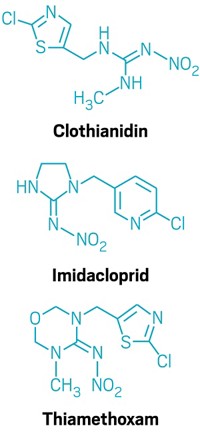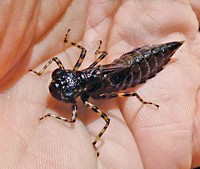Advertisement
Grab your lab coat. Let's get started
Welcome!
Welcome!
Create an account below to get 6 C&EN articles per month, receive newsletters and more - all free.
It seems this is your first time logging in online. Please enter the following information to continue.
As an ACS member you automatically get access to this site. All we need is few more details to create your reading experience.
Not you? Sign in with a different account.
Not you? Sign in with a different account.
ERROR 1
ERROR 1
ERROR 2
ERROR 2
ERROR 2
ERROR 2
ERROR 2
Password and Confirm password must match.
If you have an ACS member number, please enter it here so we can link this account to your membership. (optional)
ERROR 2
ACS values your privacy. By submitting your information, you are gaining access to C&EN and subscribing to our weekly newsletter. We use the information you provide to make your reading experience better, and we will never sell your data to third party members.
Environment
Pesticide Mixtures Hurt Salmon
Contaminants impair fish's sense of smell
by Rachel Petkewich
June 16, 2008
| A version of this story appeared in
Volume 86, Issue 24

MIXTURES OF PESTICIDES at concentrations found in the environment can wreck a salmon's sense of smell, according to a new study (Environ. Sci. Technol., DOI: 10.1021/es800240u).
Salmon use their sense of smell to find food and mates, detect predators, and migrate seasonally from rivers to oceans. The new findings suggest that the effects of pesticides in rivers on olfaction may be at least partially responsible for declining salmon stocks, which led to this year's ban on commercial fishing for wild salmon along the U.S. Pacific Coast.
Previous studies briefly exposed salmon to individual pesticides. Although these studies have helped researchers better understand the physiological effects of specific pesticides, they overlook the fact that fish are exposed to varying mixtures in the environment, says coauthor Keith B. Tierney, currently a biology postdoc at the University of Windsor, Ontario. "Our results indicate salmon restoration efforts may meet with limited success unless water quality issues are resolved first," he says.
In their study, Tierney, Christopher J. Kennedy, a biology professor at Simon Fraser University in British Columbia, and colleagues quantified 40 pesticides in water from British Columbia's Nicomekl River. The researchers identified the 10 most concentrated pesticides and blended them in solution.
Among the solutes were organophosphates such as dimethoate, atrazine, and malathion at the same levels found in the river. The scientists exposed rainbow trout—a member of the salmon family—to the solution for four days. The fish subsequently demonstrated diminished ability to distinguish changes in an odorant that would signal an approaching predator.
"This work shows that real-world levels of pesticides are not safe for salmon," says Niladri Basu, an environmental toxicologist at the University of Michigan. He notes that pesticide risk assessments need to be designed carefully to mirror ecologically relevant scenarios.
John D. Stark, director of the Salmon Toxicology Laboratory at Washington State University, says he doubts that the decline that led to canceling this year's salmon catch from Oregon to California can be solely attributed to pesticide exposure, but pesticides appear to have played a role. "The reduction in wild salmon populations is probably due to a number of factors, including warmer waters," he says.





Join the conversation
Contact the reporter
Submit a Letter to the Editor for publication
Engage with us on Twitter